(1924-2003)
a.k.a.
Husband of:
1. Princess Ira von Furstenberg, mar 1955-1960
3. Mari Lys Gaggero, former wife of Gibraltar's tourism baron Joe Gaggero, mar 1991-2000. (The Guardian)
His lovers were:
1) Ava Gardner.
2) Heidi Balzer.
(a.k.a. Heidi Balzar)
3) Kim Novak.
Alfonso's personal & family background: "One of six children, the Prince was born Alfonso (after King Alfonso XIII of Spain) Maximiliano Victorio Eugenio Alexandro Maria Pablo de la Santisima Trinidad y todo los Santos in Madrid on May 28 1924. He was baptised at the royal palace, with King Alfonso XIII and Queen Victoria Eugenia standing as godparents. Alfonso's father was Prince Max Egon Maria Erwin Paul von Hohenlohe-Langenburg. His uncle married Prince Philip's sister Margarita. His mother, Dona Maria de la Piedad Iturbe y Scholtz, was the Marquesa de Belvis de las Navas in her own right, a title (later inherited by Alfonso's elder sister) which came from her Basque grandfather, who had made a fortune in Mexico. Marrying into a more ancient nobility gained the Marquesa an invitation to the coronation of the last Russian Tsar. Her property at the time of her marriage to Alfonso's father included a castle in Madrid, a hotel in Malaga and vast estates in Portugal and Mexico." (The Sydney Morning Herald)
Aribert von Anhalt.
'Of these children, only Marie Louise married. In 1891 she wed Prince Aribert of Anhalt; the prince was homosexual, and the marriage was never consummated. When, after nine years, Artibert was apparently found in bed with another man, his father blamed Marie Louise, claiming that his son had been denied his conjugal rights, and accused her of indecency. Marie Louise fleneral" 'Tell my d to Canada to avoid the scandal, but Queen Victoria dispatched a telegram to the governor-general: 'Tell my granddaughter to come home to me.' The queen fully supported her granddaughter, although the marriage ended in a contentious divorce officially disguised as an annulment. 'Poor Marie Louise,' her uncle the Prince of Wales commenced, 'she came back just as she went!'" (Twilight of Splendor: 58)
 |
| Hermann von Puckler-Muskau |
Son of Carl Ludwig Hans Erdmann von Pückler & Clementine von Callenberg
 |
| Lucie von Pappenheim @Wikipedia |
Husband of Lucie von Pappenheim, née von Hardenberg, mar 1817, diss 1826, daughter of Prince Karl August von Hardenberg
 |
| Hermann von Puckler-Muskau @Wikipedia |
"Hermann Prince von Puckler-Muskau (1785-1871) was one of Europe's greatest garden artists, a dandy, a womaniser, a successful travel book author, god company and an enthusiast of fancy food who gave his name for an ice cream." (Puckler Museum)
"Pückler, born in 1785, was the only surviving son of a father whose talent for financial management was abysmally low. As a result, he had to embark on a tour of England in his late thirties. He had inherited two big estates, one at Muskau, the other at Branitz about 20 miles farther west. Together they totalled 200 square miles, including a town and more than 40 villages. As the estates were heavily in debt, Pückler agreed a deal with his wife. He would separate from her, tour England and source a rich heiress. He would then marry his new find and use her funds to revive the properties. By mutual agreement Lucie would vacate the house." (Financial Times)
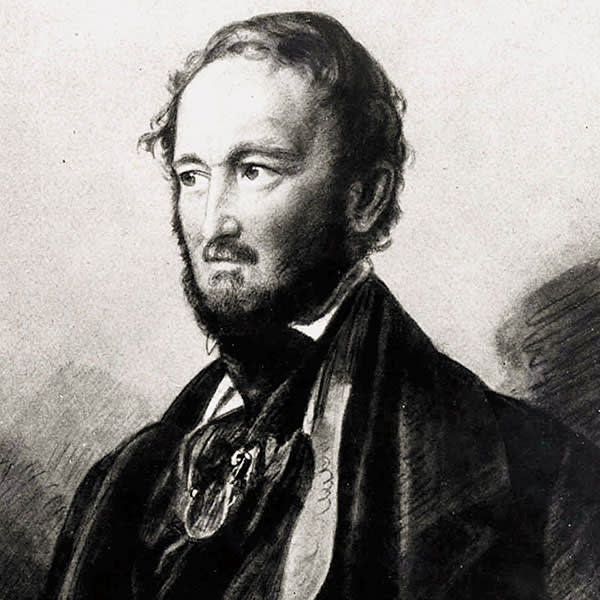 |
| Hermann von Puckler-Muskau @Financial Times |
Physical appearance & personal qualities.
" . . . After a couple of years at the university of Leipzig, he entered the Saxon army, and soon became notorious for his good looks, his fine horsemanship, his extravagance, and his mischievous pranks. . . In 1810 Graf Puckler died, and his son stepped into a splendid inheritance. Like Prince Hal, the young Graf seems to have taken his new responsibilities seriously, and to have devoted himself, with only too much enthusiasm, to the development and improvement of his states. . . ." (Little Memoirs of the Nineteenth Century: 282)
Series of love affairs.
" . . . In the intervals of business, he amused himself with an endless series of love affairs, his achievements in this respect, if his biographer may be believed, more than equaling those of Jupiter and Don Giovanni put together. Old and young, pretty and plain, noble and humble, native and foreign, all were fish that came to the net of this lady-killer, who not only vowed allegiance to nearly every petticoat that crossed his path, but---a much more remarkable feat---kept up an impassioned correspondence with a large selection of his charmers. After his death,a whole library of love letters was discovered among his papers, all breathing forth adoration, ecstasy or despair, and addressed to the Julies, Jeannettes, or Amalies who succeeded one another so rapidly in his facile affections. . . ." (Little Memoirs of the Nineteenth Century: 282)
Spouse & children.
"In 1817 he had married the Dowager Countess Lucie von Pappenheim, nee von Hardenberg, daughter of the Prussian statesman Prince Karl August von Hardenberg; the marriage was legally dissolved after nine years, in 1826, though the parties did not separate and remained on amiable terms." (Regina Jeffers)
"After inheriting his family's castle at Muskau, Pückler married Countess Lucie von Pappenheim, daughter of the Prussian chancellor, Prince Karl August von Hardenberg. The newlyweds were fond of luxurious living and soon ran up expenses far in excess of their income. When the chancellor bequeathed his assets to a mistress, depriving Pückler's wife of an expected inheritance, the couple divorced, and Pückler set off for England to find another heiress who would put him back on a comfortable financial footing. His account of his travels and travails was published anonymously in 1830 under the title Letters from a Dead Man. The book became an overnight literary success, but the hunt for a wealthy new wife proved fruitless. All the while, Pückler retained amorous ties with Lucie, who continued to live at Muskau." (Travel and Leisure)
 |
| Hermann von Puckler @Gutenberg |
His lovers were:
1) Empress Augusta.
German writer, composer, social critic & literary hostess
3) Helmine?.
4) Henriette Sontag.
5) Herminie Lanzendorf.
" . . . Scarcely had the Graf surrendered his liberty than he fell passionately in love with his wife's adopted daughter, Helmine,a beautiful girl of eighteen,the child, it was believed, of humble parents. Frederick William III of Prussia was one of her admirers, and had offered to marry her morganatically,and create her Herzogin von Breslau. But Helmine gave her royal suitor no encouragement,and he soon consoled himself with the Princess Liegnitz. Lucie spared no pains to marry off the inconvenient beauty, but Puckler frustrated all her efforts, implored her not to separate him from Helmine, and suggested an arrangement based upon the domestic policy of Goethe's Wahlverwandtschaften. But Lucie was unreasonable enough to object to a menage a trois, and a tlength succeeded in marrying Helmine to a Lieutenant von Blucher." (Paston: 285)
5) Lucie von Pappenheim.
"In 1816 Puckler became acquainted with Lucie, Grafin von Pappenheim, a daughter of Prince Hardenberg, Chancellor of Prussia. The Grafin, a well-preserved woman of forty, having parted from her husband, was living at Berlin with her daughter, Adelheid, afterwards Princess Carolath, and her adopted daughter, Herminie Lanzendorf. The Graf divided his attentions equally between the three ladies for some time, but on inquiring of a friend which would make the greatest sensation in Berlin, his marriage to the mother or to one of the daughters, and being told his marriage to the mother, at once proposed to the middle-aged Grafin, and was joyfully accepted... His Lucie had only a moderate dower, but the advantage of being son-in-law to the Chancellor of Prussia could hardly be overestimated. Again,. the Graf seems to have imagined that in a marriage of convenience with a woman nine years older than himself,he would be able to preserve the liberty of his bachelor days, while presenting the appearance of domestic respectability." (Paston: 284)
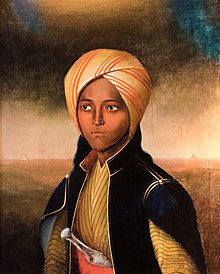 |
| Machbuba c1840 @Wikipedia |
6) Machbuba (1825-1840)
Lover in 1838.
Also known as:
Ajiamé
Bilillee
Mahbuba.
Personal & family background.
"Born around 1825 Bilile was little more than ten years old when her life was shattered, apparently as a result of inter-ethnic fighting. Her father and brothers were all killed, and she and a sister fell into the hands of slave-merchants. She was taken first to the then Ethiopian capital, Gondar ; next to Khartoum , in the Sudan ; and finally, to Cairo , site of an internationally famous slave-market." (Mahbuba, the Beloved)
" . . . At the slave market of Cairo he was enchanted by an Ethiopian girl in her early teens whom he promptly bought and named Mahbuba ('the beloved'). Together they continued a romantic voyage in Asia Minor and Greece. In Vienna, he introduced Mahbuba to the European high society, but the girl developed tuberculosis and died in Muskau in 1840. Later he would write that she was 'the being I loved most of all the world." (Regina Jeffers)
"Called Machbuba, she was a native of Ethiopia who was bought by Prince Puckler-Muskau in 1838 to be his mistress. Although the prince claimed to love Machbuba, the fact that she had been purchased by him implies that Machbuba's own wishes may not have corresponded to the prince's desire for her. Two years after being bought, she died unhappily having become the object of scorn in the town of Muskau, whose inhabitants never accepted her or her relationship to the prince. That is, a relationship without marriage...." (Colors 1800, 1900, 2000: Signs of Ethnic Difference: 78))
7) Sarah Austin (1793-1867)
English editor & translator from German
"Sarah grew up to be a remarkably handsome and attractive woman, and caused some surprise by marrying John Austin (1790-1859) om 24 August 1819. During the first years of their married life they lived a wide social life in Queen's Square, Westminster. . . According to a modern scholar, Austin 'tended to be austere, reclusive, and insecure, while she was very determined, ambitious, energetic, gregarious, and warm. Indeed, her affections were so starved that in the early 1830s she had a most unusual 'affair' with Hermann Puckler-Muskau, a German prince whose work she translated. It was conducted solely by an exchange of letter and she did not meet her correspondent until their passions had cooled.'" (Wikipedia)
Sarah's personal & family background.
"Sarah was born in 1790 into a prestigious Norwich Unitarian family, the Taylors. Like other clever girls from this progressive sect, she was highly educated and taught to consider herself equal, but still to see woman's destiny as that of helpmeet. Energetic, beautiful, almost scandalously flirtatious, she married the severe legal scholar John Austin and pinned her ambitions to his glorious career. . ." (Independent)
Sarah's accomplishments.
Sarah's accomplishments.
" . . . Sarah Austin (1793-1867) . . . was a learned and vivacious beauty, the wife of the austere legal scholar John Austin. Known in her day as a leading translator of German and French works on history and literature, and as author of one of the first books in English about Goethe, she attracted the admiration and friendship of notable intellectual figures, including Jeremy Bentham, Thomas Carlyle, and John Stuart Mill. . . ." (Contemplating Adultery: The Secret Life of a Victorian Woman)
8) Sophie Gay.
Personal and family background.
" . . . Hermann Ludwig was the only son of Gran von Puckler of Schloss Branitz, and of his wife, Clementine, born a Grafin von Gallenberg, and heiress to the vast estate of Muskau in Silesia. Both families were of immense antiquity ,the Pucklers claiming to trace their descent from Rudiger von Bechlarm, who figures in the Nibelungenlied. . . ."(Paston: 281)
Wenzel Anton von Kaunitz-Rietberg
|
(1711-1794)
Bohemian diplomat & statesman.
Personal & family background: "The gallant diplomatist, who soon assumed the manners of the highest classes, with which the eighteenth century combined a noble love of justice and an ardent passion for goodness, was one of the most singular persons Nature ever produced; but she had given him, as a compensation, superior talent. His name was Wenceslaus Anthony of Kaunitz, and he was born in the capital of Austria on the 4th of February, 1711. As he had nineteen brothers and sisters, among whom he was one of the youngest, his parents intended him to wear the gown, while still in the cradle, canon of Munster. By this fact it may be guessed that the Kaunitzes formed a rich and powerful family, for poor children did not obtain such rich benefices before they were weaned. The Kaunitzes, in fact, possessed very extensive domains in Moravia, where only the Lichtensteins or the Dietrichsteins could rival them in opulence. They derived their name from a patrimonial estate situated near Brunn. Ulrich, the father of Wenceslaus, had been ambassador to several courts, and especially to Madrid; consequently the statesman who now occupies our attention found no obstacles at the outset of his career. A gentle sloping avenue, bordered by turf and secular trees, was expanded before him, and seemed to invite him onward to receive honors. An equally fortunate accident saved him from taking orders. Nearly all his brothers died, and his family gave up the design of making him wear the surplice. His mother, fearful of losing him like the rest of her boys, paid him the most careful attention, and watched his every respiration. This restless care infected the young prince, who displayed during his whole life a superstitious veneration fir his health; his hygienic precautions surpassed the strangest inventions for the present day." (Secret History of the Austrian Government: 280-282)
Parisians' great curiosity of the day: "At Paris, the Austrian ambassador became before long one of the great curiosities of the day. His grave, official, and methodical manner of courting the fair sex, his imperturbable coolness when he paid them his amorous flattery, his blind confidence in the young persons who accepted his presents and his heart, were an inexhaustible source of jokes and gaiety for French society. At Brussels even, where he kept the famous courtesan Proli, people were amused by his solemn libertinism. At Paris it was a different thing: the German petit maitre obtained an ironical success. Designers employed him as the subject of many a caricature; farce writers introduced him on the stage, and he was not at all spared in conversation. But the prince was perfectly impassive: he felt not the slightest ill-will at the jests of the Parisians, and their pin-pricks could not disturb his Olympian calmness: he opposed a majestic and unalterable serenity to their mockery and caricatures. His face remained as the countenance of a statue, his mind seemed to be hovering in a sphere inaccessible to raillery; but, in spite of this carelessness, he replied in an incisive, sharp, and clever manner, which caused surprise to the cleverest and most experienced men, and induced them to suspend their attacks. As other strategic processes were the fashion in France, the ambassador's method soon produced a sensation, and ended by finding worthy appreciators." (Secret History of the Austrian Government: 282-283)
Parisians' great curiosity of the day: "At Paris, the Austrian ambassador became before long one of the great curiosities of the day. His grave, official, and methodical manner of courting the fair sex, his imperturbable coolness when he paid them his amorous flattery, his blind confidence in the young persons who accepted his presents and his heart, were an inexhaustible source of jokes and gaiety for French society. At Brussels even, where he kept the famous courtesan Proli, people were amused by his solemn libertinism. At Paris it was a different thing: the German petit maitre obtained an ironical success. Designers employed him as the subject of many a caricature; farce writers introduced him on the stage, and he was not at all spared in conversation. But the prince was perfectly impassive: he felt not the slightest ill-will at the jests of the Parisians, and their pin-pricks could not disturb his Olympian calmness: he opposed a majestic and unalterable serenity to their mockery and caricatures. His face remained as the countenance of a statue, his mind seemed to be hovering in a sphere inaccessible to raillery; but, in spite of this carelessness, he replied in an incisive, sharp, and clever manner, which caused surprise to the cleverest and most experienced men, and induced them to suspend their attacks. As other strategic processes were the fashion in France, the ambassador's method soon produced a sensation, and ended by finding worthy appreciators." (Secret History of the Austrian Government: 282-283)
His lovers were:
1) Gabrieli.
2) Proli.
1) Gabrieli.
"Ever faithful to his system, the ambassador only received into his apartments, or his gardens, a celebrated singer of the day, Mademoiselle Gabrielli, and the flower of those amiable adventuresses who at that day contended for the love ot the great lords. They frolicked beneath the share of the trees or round the basis with that freedom of manner and careless gaiety characteristic of their giddy tribe. The discreet walks, the mysterious thickets, listened to , not grave discussion on political affairs, but easy couplets, and joyous bursts of laughter singled with the singing of the birds. . . ." (Secret History of the Austrian Government and of Its Systematic Persecution of Protestants: 280)
2) Proli.
"In his younger days, Kaunitz plunged heart and soul into all the pleasures of French gallantry and fashionable vanity. In Brussels, he made love the famous courtesan Proli; in Paris, to the celebrated prima donna Gabrieli, and to a host of more or less renowned grisettes of that gay capital. The Germany steady assiduity with which he paid his court, and the equally Germanic good-natured illusion which he made to himself of the fidelity of his mistresses, became a subject for mirth to the French, who were better versed in the wicked ways of the world... By his Belgian mistress, Kaunitz had a son; who in the French revolution distinguished himself as a Jacobin at the worship of the 'Goddess of Reason.'" (Vehse, n.d., p. 191)
Honours & Achievements: Canon in Munster; Chamberlain to Emperor Karl VI; Aulic Councillor of the Empire (1735); Prince of the Holy Roman Empire (1764); Imperial Commissioner, Ratisbon German Diet (1739); Diplomatic mission in Florence, Rome & Turin (1741); Ambassador to Turin (1742); Austrian Netherlands minister (1744) Holy Roman Empire delegate in Congress of Aachen (1748); Ambassador to Versailles (1750-1753); Chancellor of State & Minister of Foreign Affairs (1753-1793); Founder of the Austrian Council of State (1761); Prince of the Holy Roman Empire; Prince of Bohemia (1776).
References:
Prince Wenzel Anton Kaunitz on Kronoskaf: The Virtual Time Machine.
References.
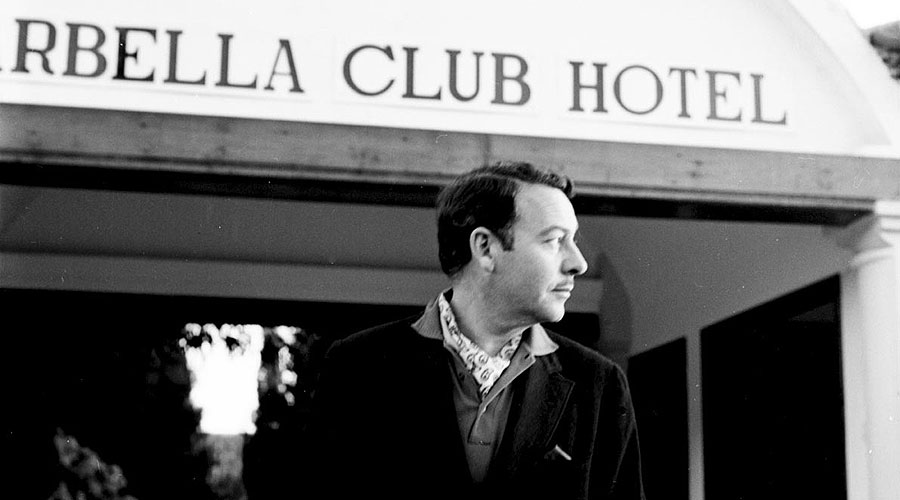


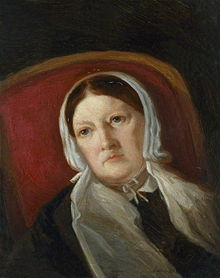

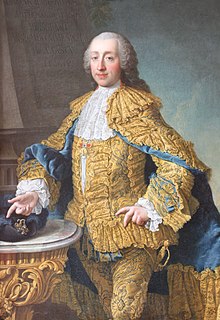
No comments:
Post a Comment